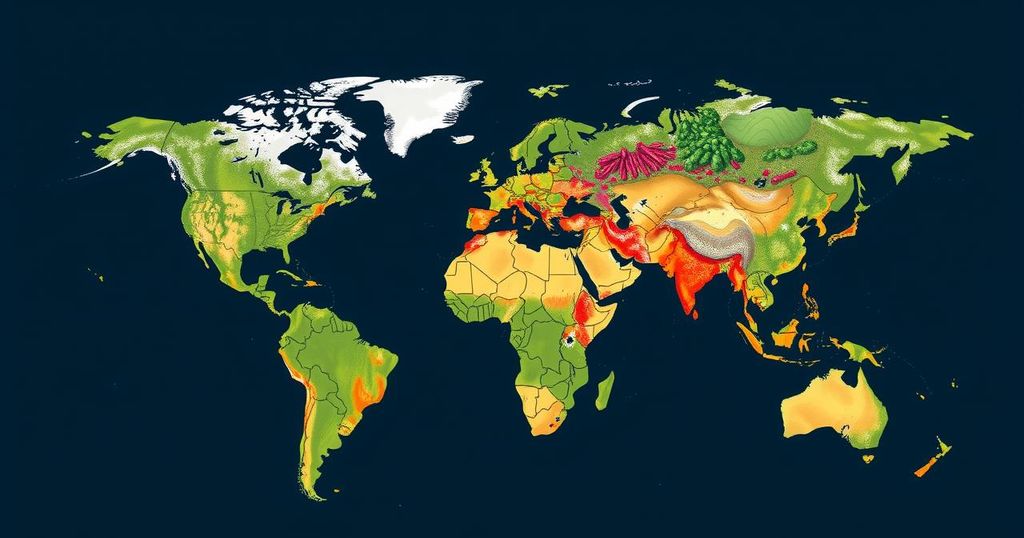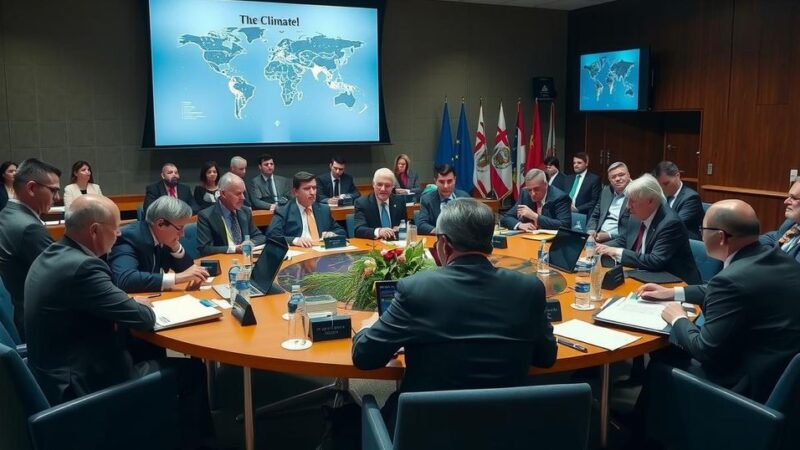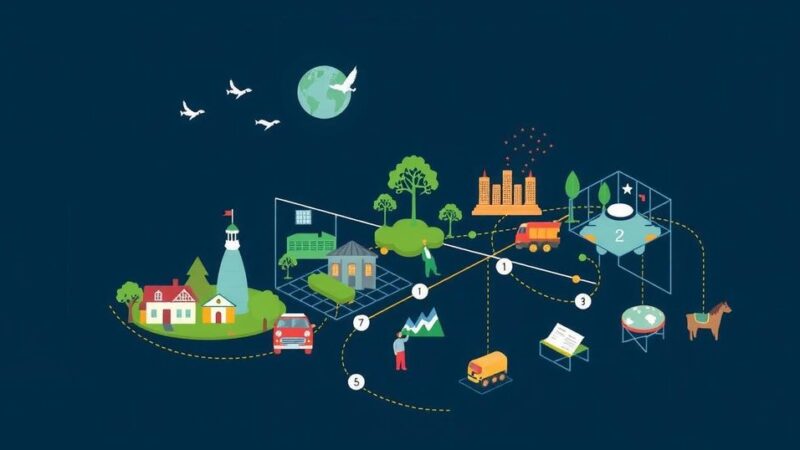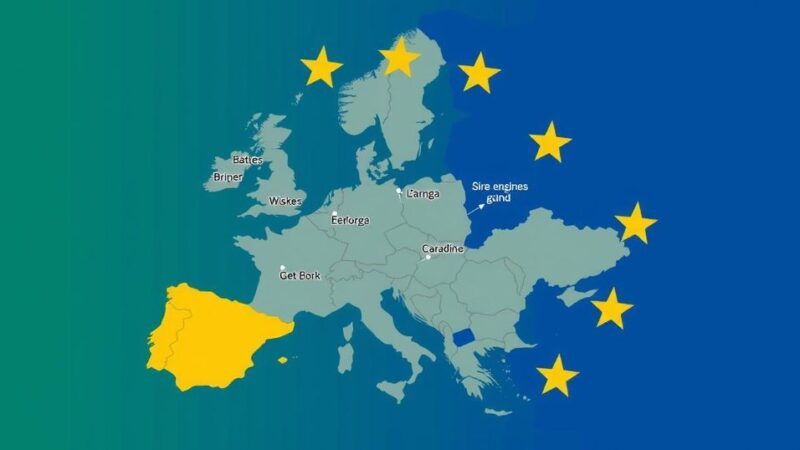A report by the Global Commission on the Economics of Water warns that climate change has significantly jeopardized fresh water availability, potentially threatening over half of global food production by 2050. With nearly three billion people impacted, especially in densely populated areas, drastic decreases in agricultural outputs and serious economic downturns are anticipated unless cooperative global efforts are enacted to address these challenges.
A recent report issued by the Global Commission on the Economics of Water (GCEW) highlights a critical water crisis exacerbated by climate change that threatens global food production. The report indicates that the reliability of fresh water supplies is diminishing due to altered rainfall patterns, with projections suggesting that over half of the world’s food production could be at risk by 2050 if current trends persist. The GCEW’s findings stem from a comprehensive two-year research initiative launched by the Netherlands in 2022. It reveals that nearly three billion people are residing in areas projected to experience a decline in total water storage. Specifically, densely populated regions such as northwestern India, northeastern China, and parts of southern and eastern Europe are particularly susceptible to water shortages. Should this persist, global cereal production may suffer a decline of up to 23 percent. The report also identifies a concerning cycle where rising temperatures lead to a loss of ‘green water’, the moisture contained within soils and vegetation, which is vital for contributing to global rainfall. Increased temperatures contribute to drier soils, exacerbating droughts and wildfires, leading to further degradation and a reduction in biodiversity, thus diminishing the amount of green water available. From an economic perspective, the GCEW warns of significant global repercussions, forecasting as much as an 8 percent reduction in Gross Domestic Product (GDP) for high-income nations and up to 15 percent for lower-income ones by 2050. These declines would arise from the combined impacts of altered precipitation patterns, increasing temperatures, and inadequate access to clean water and sanitation. To combat this water crisis, the report emphasizes the necessity for global cooperation, urging that the water cycle be regarded as a commons essential for collective governance. Singapore’s President Tharman Shanmugaratnam, co-chair of the GCEW, stated, “We are going to have to set common goals for water sustainability” and underscored the need for a comprehensive global water pact, despite acknowledging that such efforts would require extensive time. Additionally, the report calls for the discontinuation of detrimental subsidies in water-intensive sectors, advocating the reallocation of funds towards sustainable water-saving solutions. Ngozi Okonjo-Iweala, Director General of the World Trade Organisation and fellow co-chair, highlighted the need to redirect approximately $600 billion in agriculture subsidies encouraging excessive water consumption, and stressed the importance of avoiding the cultivation of water-intensive crops in unsuitable areas. This urgent call to action outlines the interconnectedness of climate, water resources, and food security, illustrating the profound challenges posed by the ongoing climate crisis.
The issue of water scarcity is deeply intertwined with climate change, which has been leading to altered precipitation patterns globally. This shift, compounded by harmful land practices and mismanagement of water resources, has resulted in what is referred to as unprecedented stress on the global water cycle. This situation has profound implications for food security, especially as agriculture relies heavily on reliable access to fresh water. The challenges presented by these changes expose vulnerable populations, particularly in densely populated regions, and threaten global agricultural productivity, making the need for international cooperation and reform even more critical.
In summary, the report by the Global Commission on the Economics of Water highlights an urgent crisis stemming from climate change that jeopardizes global food security by threatening fresh water supplies. It underscores the vulnerability of populations in various regions and projects significant economic repercussions from ongoing water scarcity. The call for a global water pact, elimination of harmful subsidies, and sustainable practices in agriculture serves as a critical roadmap for addressing these challenges, indicating that proactive and cooperative measures are imperative to safeguard future water resources and food production.
Original Source: www.rfi.fr






